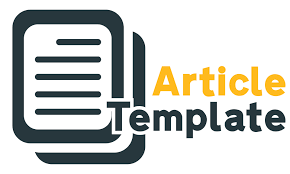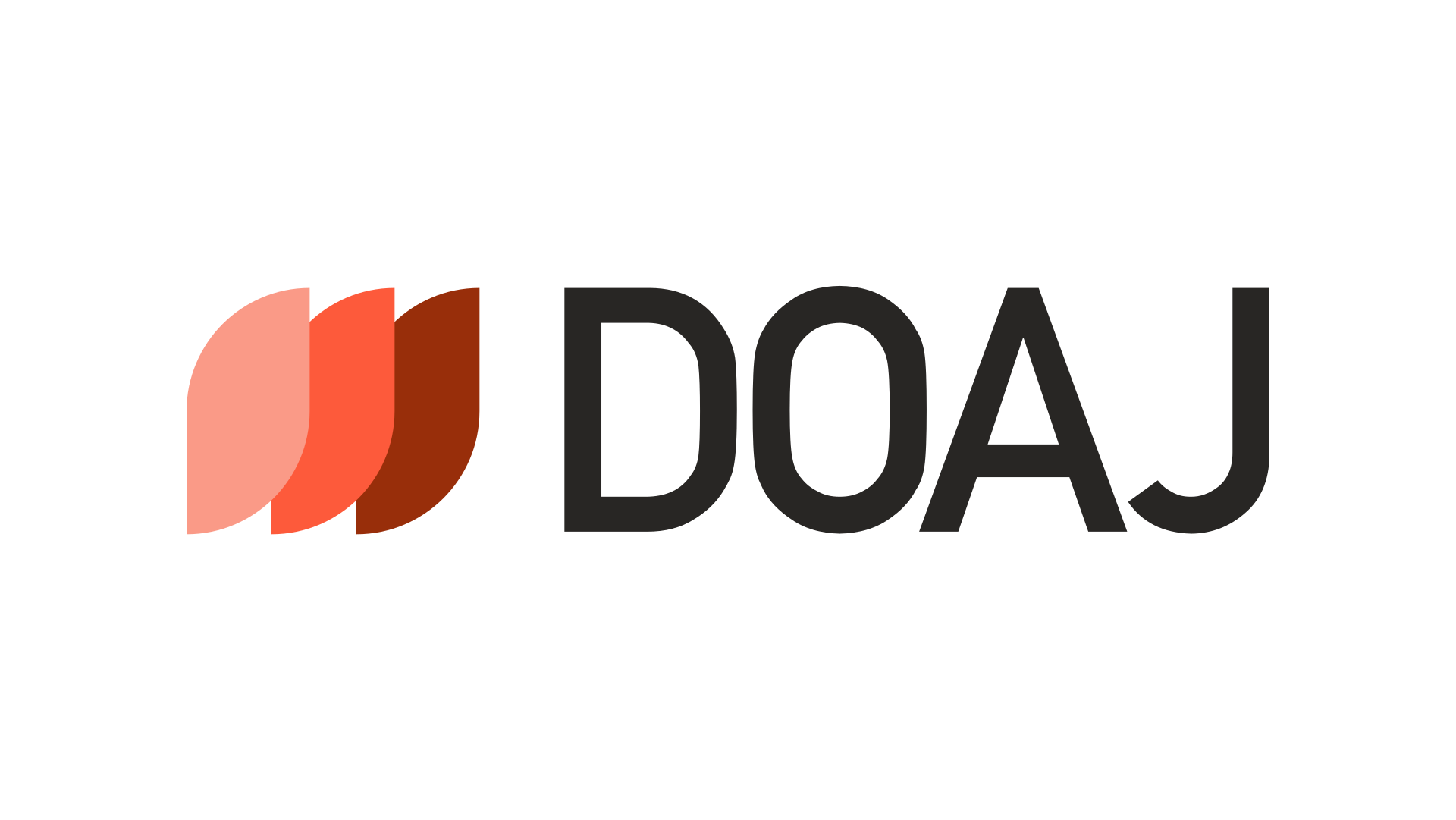The effectiveness of behavioral knowledge sharing and self -efficacy on management accountant productivity: The role of stewardship theory
DOI:
https://doi.org/10.38043/revenue.v6i1.6064Keywords:
Management accountant, productivity, self-efficacy, knowledge sharing, stewardshipAbstract
This research aims to investigate the effectiveness of knowledge-sharing behavior and self-efficacy in enhancing
the productivity of management accountants. Management accountants hold a vital position in organizations as
they are responsible for managing, analyzing, and reporting both financial and non-financial information to
support strategic decision-making. Therefore, understanding the specific factors that influence their productivity
is essential. This study adopts a quantitative research method with a survey approach, involving management
accountants from various private sector organizations across Indonesia as respondents. The research findings
demonstrate that knowledge-sharing behavior significantly contributes to improving management accountants’
productivity by fostering collaboration, learning, and innovation. Furthermore, self-efficacy emerges as a critical
factor, functioning as an internal driver that enhances motivation and work performance through stronger selfregulation. This study extends previous research by focusing explicitly on management accountants, whose unique
responsibilities and performance dynamics are often overlooked in broader performance studies, thereby offering
valuable insights into both theory and practice.
References
Agustinah, E., Naser, J. A., & Mulyono, S. (2020). Pengaruh kompetensi, budaya organisasi, motivasi kerja, dan gaya kepemimpinan terhadap kinerja karyawan melalui kepuasan kerja pada UKM Batik Tulis di Malang Raya. Jurnal Ekonomi Dan Manajemen, 21(1), 3040.
Alamsyah, A., Modding, B., & Kamase, J. (2021). Pengaruh kompensasi dan gaya kepemimpinan terhadap kinerja karyawan pada Hotel Horison Ultima Makassar. Tata Kelola, 8(2), 186207. https://doi.org/10.52103/tatakelola.v8i2.566
Azhari, M. I., & Priyono, B. S. (2022). Knowledge sharing dan kompetensi terhadap kinerja pegawai melalui organizational citizenship behavior (OCB). Jurnal E-Bis (Ekonomi-Bisnis), 6(1), 243255.
Berliana, V., & Arsanti, T. A. (2018). Analisis pengaruh self-efficacy, kapabilitas, dan perilaku kerja inovatif terhadap kinerja. Jurnal Maksipreneur: Manajemen, Koperasi, Dan Entrepreneurship, 7(2), 149161. https://doi.org/10.30588/jmp.v7i2.364
Choirunissa, A., Prayekti, P., & Septyarini, E. (2020). Pengaruh kepuasan kerja terhadap kinerja individual dengan self efficacy sebagai variabel intervening. Jurnal Ilmiah Manajemen Kesatuan, 8(3), 349360. https://doi.org/10.37641/jimkes.v8i3.400
Donaldson, L., & Davis, J. H. (1991). Stewardship theory or agency theory: CEO governance and shareholder returns. Australian Journal of Management, 4966.
Erwina, E., & Mira, M. (2019). Pengaruh knowledge sharing terhadap kinerja karyawan pada perusahaan air minum (PAM) Tirta Mangkaluku Kota Palopo. JEMMA: Journal of Economic, Management and Accounting, 2(2), 7581. https://doi.org/10.35914/jemma.v2i2.251
Fadila, K., Ferdiansyah, J. R., Dwiyan, M., & Magdalena, B. (2022). Pengaruh knowledge sharing dan gaya kepemimpinan transformasional terhadap produktivitas kerja karyawan Honda Arista Rajabasa Lampung. Prosiding Seminar Nasional Darmajaya, 3037.
Harsono, H., Musnadi, S., & Putra, T. R. I. (2020). The effect of knowledge sharing and knowledge management on performance of Stain Gajah Putih mediated by job satisfaction. International Journal of Scientific and Management Research2, 3(3), 3547.
Khaerana, K., & Mangiwa, B. (2021). Pengaruh knowledge sharing terhadap kinerja karyawan pada PT PLN (Persero). Jurnal Manajemen STIE Muhammadiyah Palopo, 7(2), 163171. https://doi.org/10.35906/jurman.v7i2.919
Khaerana, K., & Mangiwa, B. (2021). Pengaruh knowledge sharing terhadap kinerja karyawan pada PT PLN (Persero). Jurnal Manajemen STIE Muhammadiyah Palopo, 7(2), 163171. https://doi.org/10.35906/jurman.v7i2.919
Kusufi, M. S., Rohma, F. F., & Muhammad, E. (2020). Pengaruh horizon skema turnamen dan frekuensi publikasi informasi relatif terhadap kinerja karyawan. Jurnal Kajian Akuntansi, 4(1), 1-12.
Lianto, L. (2019). Self-Efficacy: A brief literature review. Jurnal Manajemen Motivasi, 15(2), 55. https://doi.org/10.29406/jmm.v15i2.1409.
Lukiyana, L., & Hukom, M. (2022). Effect of self efficacy and locus of control on employee performance with transformational leadership style as moderating variable. Budapest International Research and Critics Institute-Journal (BIRCI-Journal), 5(2), 1561915630.
Marifatullah, A., Mahyuni, & Akhmad, B. A. (2021). The effect of communication and work discipline on employee performance in the regional secretariat of Hulu Sungai Utara Regency. International Journal of Political, Law, and Social Science, 2(3), 4658. https://doi.org/10.25139/sng.v11i2.4158
Masruroh, Z., & Prayekti, P. (2021). Pengaruh self efficacy terhadap kinerja karyawan melalui kepuasan kerja sebagai variabel mediasi. Jurnal Syntax Transformation, 2(4), 565571.
Ndruru, F. A., Hardi, H., & Wiguna, M. (2019). Pengaruh role conflict, role ambiguity, self efficacy, dan spiritual quotient terhadap kinerja auditor. Jurnal Akuntansi Dan Keuangan, 8(2), 18.
Novianthi, N. N. V., Merawati, L. K., & Munidewi, I. . B. (2021). Pengaruh profesionalisme, komitmen organisasi, locus of control internal, dan locus of control eksternal terhadap kinerja auditor di kantor akuntan publik di Bali. JURNAL KARMA (Karya Riset Mahasiswa Akuntansi), 1(5), 16811691.
Nurcahyo, S. A., Rionaldo, R., & Soesanto, H. (2022). The effect of knowledge sharing, absorption capacity on employee performance with innovation capability as intervening variables (case study on employees of the Central Java Agricultural Technology Research Center). Budapest International Research and Critics Institute-Journal (BIRCI-Journal), 5(1), 114124. https://doi.org/10.33258/birci.v5i1.3584
Partogi, S. A., & Tjahjawati, S. S. (2019). Pengaruh knowledge sharing terhadap kinerja karyawan perusahaan milik pemerintah. Jurnal Riset Bisnis Dan Investasi, 5(3), 4657. https://doi.org/10.35313/jrbi.v5i3.1698
Partogi, S. A., & Tjahjawati, S. S. (2019). Pengaruh knowledge sharing terhadap kinerja karyawan perusahaan milik pemerintah. Jurnal Riset Bisnis Dan Investasi, 5(3), 4657. https://doi.org/10.35313/jrbi.v5i3.1698
Raharjo, E. (2007). Agency Theory Vs Stewardship Theory In The Accounting Perspective. Jurnal Ilmiah Ekonimi. https://doi.org/10.34152/fe.2.1.%25p
Rahil, R., & Laela, S. F. (2022). Etika islami dan kecurangan pada profesi akuntan manajemen: Dampak moderasi kualitas pengendalian internal dan lingkungan kerja. Jurnal Riset Manajemen, 9(2), 7492. https://doi.org/10.32477/jrm.v9i2.463
Rijal, F., & Abdullah, M. W. (2020). Pengaruh healty lifestyle, psychologicl, well being, dan self afficacy terhadap kinerja auditor dengan task complexity sebagai pemoderasi. Jurnal Akuntansi: Kajian Ilmiah Akuntansi (JAK), 7(1), 2243.
Rohim, A., & Budhiasa, I. G. S. (2019). Organizational culture as moderator in the relationship between organizational reward on knowledge sharing and employee performance. Journal of Management Development, 38(7), 538560. https://doi.org/10.1108/JMD-07-2018-0190
Rohma, F. F. (2022). Mitigating the harmful effect of slack: Does locus of commitment (organizational versus colleague) play a role. International Journal of Business Science & Applied Management, 17(3).
Rohma, F. F., & Anita, N. (2024). The effect of prepayment contract frames and feedback on budgetary slack: an experimental investigation. Journal of Indonesian Economy and Business, 39(1), 73-92.
Rohma, F. F., & Novitasari, I. (2023). The moderating effect of loyalty on incentive schemes and budgetary slack relationship: An experimental investigation. The Indonesian Journal of Accounting Research, 26(2), 209-228.
Rohma, F. F., Shofiyah, I., & Junaedi, A. S. (2023). The effect of tournament horizon, faultline and group performance relationships under decentralized system. Journal of Indonesian Economy and Business, 38(1), 62-80.
Simbolon, N. L., & Priyonggo, B. S. (2022). Analysis of the effects of self-efficacy mediation and organizational commitment on the effect of transformational leadership style and organizational culture on employee performance of PT Sarana Lintas Caraka. Budapest International Research and Critics Institute-Journal (BIRCI-Journal), 5(1), 66116624.
Usmany, P. (2021). The influence of self efficacy and effort on auditor performance specific experience as antecedent variables (empirical study on BPK-RI in Indonesia). Budapest International Research and Critics Institute-Journal, 1236612379.
Yani, P., Ariyanti, Y., Pratiwi, R., & Kusuma, J. (2022). The effect of communication skill and transformational leadership on employee performance with knowledge sharing as an intervening variable (case study: Matahari Department Store Java Supermall Semarang). International Journal of Management and Business Economics, 1(1), 3240. https://doi.org/10.58540/ijmebe.v1i1.42
Books
Bandura, A. (1986). Social foundations of thought and action: A social cognitive theory. Prentice Hall.
Bandura, A. (1997). Self-Efficacy: The exercise of control. Freeman.
Sugiyono, S. (2019). Metode Penelitian Kuantitatif, Kualitatif, dan R&D. Alfabeta.
Downloads
Published
How to Cite
Issue
Section
License
Copyright (c) 2025 Frida Fanani Rohma, Nur Anita

This work is licensed under a Creative Commons Attribution-ShareAlike 4.0 International License.











